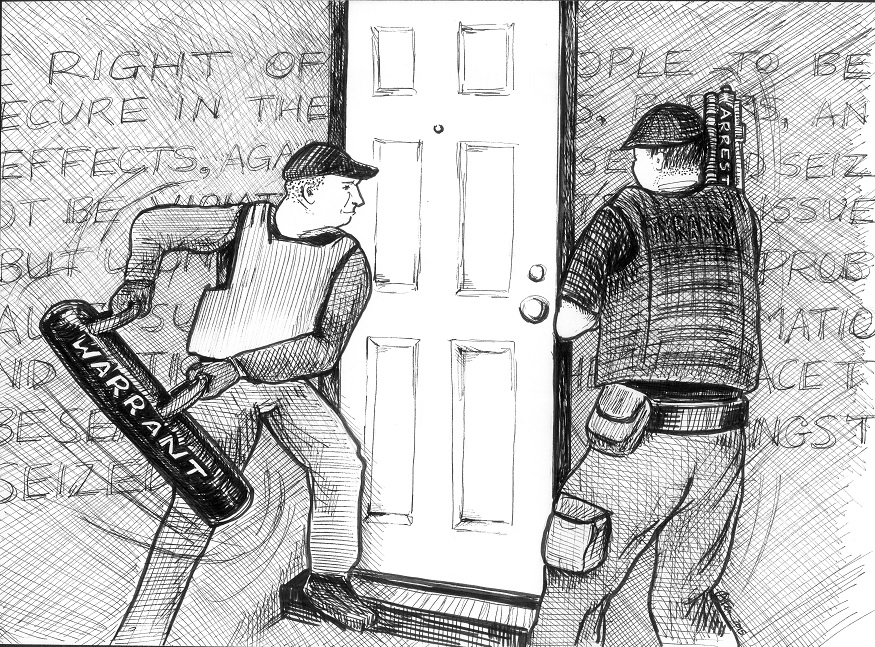U.S. Supreme Court Rules “No” On Search Warrants
February of 2014, the U.S. Supreme Court ruled that police no longer have to possess a search warrant when searching a person’s property. Officials are able to enter a private residence provided (1) two occupants disagree about allowing officials to enter, and (2) the resident who refuses access is arrested.
Fernandez v. California was triggered by a robbery in Los Angeles that happened back in 2009. Officials witnessed a suspect, Walter Fernandez, running into an apartment building and heard screaming from the building. Police officers went to the apartment and Fernandez’s girlfriend, Roxanne Rojas, who appeared to be battered and bleeding, answered the door.
The officers asked Rojas to step out so they could search the apartment. Fernandez came to the door refusing to let the officers enter. Suspecting that Fernandez assaulted Rojas, they arrested him. The police later identified him as the robber and was then taken to the police station. The officers later returned and searched the apartment after obtaining Rojas’ written and oral consent. The officers found evidence linking Fernandez to the robbery and the suspect was convicted.
The court referred to previous cases when coming to a verdict. A vital issue that sparked concern was the Fourth Amendment and its ban on unreasonable searches and seizures, which are affected by property laws, but not controlled by them. The dissent warned the courts that a no-search-warrant policy would destroy any protection homeowners have against warrantless searches.
In 2006, the Supreme Court faced a similar situation in Georgia v. Randolph, which entailed a woman giving police the “okay” to enter her home to search for illicit drugs. The woman’s husband refused to let the police search the house. Officials entered the home and indicted the husband for cocaine possession. The man’s request to repress the evidence due to a warrantless search was denied.
The courts referred to another court case—United States v. Matlock—which “recognize[d] the permissibility of an entry made with the consent of one co-occupant in the other’s absence.”
The case (Matlock) states that tenants living in a household who aren’t the head of that household have an understanding, or “common authority,” to invite visitors in, regardless of whether the head of the household is present or would prohibit the visitor’s presence.
In Fernandez v. California the majority, led by Justice Samuel Alito, ruled 6 to 3 that officials need approval from the magistrate before entering a home in a case such as this.
A Washington Post journalist reported, “When occupants of a residence disagree on whether they will admit police without a warrant, the objecting occupant must be physically present.” The court further explained, saying, “That doesn’t change if police have removed the objector.”
Justice Alito said the possession of a search warrant is not necessary. Some have argued the law infringes on the U.S. citizen’s Fourth Amendment rights. Others argue that the majority of searches done are warrantless and that police cannot search your home without a reasonable cause, or where there’s an expectation of privacy.







